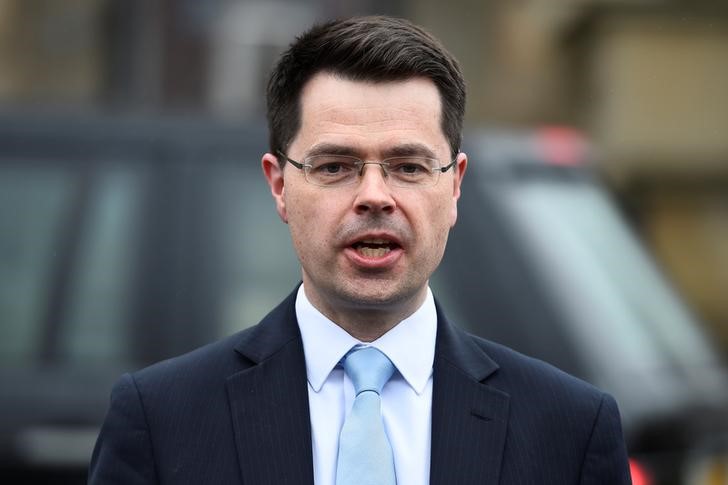LONDON (Reuters) - The British government on Friday said it was willing to extend the deadline on talks to form a power-sharing executive in Northern Ireland between Irish nationalists and pro-British unionists to late June in light of a snap UK-wide election.
The semi-autonomous Belfast government collapsed in January and despite fresh regional elections in March, no replacement executive has been agreed. That has left Northern Ireland without political leadership as Britain begins negotiating its exit from the European Union.
The British government's Northern Ireland minister James Brokenshire said new legislation would give political parties until June 29 to reach a deal.
"If an agreement is not possible before the general election, it is right that we provide flexibility for an incoming government to act in the best interests of Northern Ireland and the space for the parties to conclude a deal," Brokenshire said in a statement.
Several parties said the talks had been rendered unsustainable by Prime Minister Theresa May's decision on Tuesday to call a general election for June 8, which pits the parties involved in the talks against each other.
The extension allows the British government to avoid deciding whether to call a fresh election in Northern Ireland - the third in a year - or to revert to direct rule from London for the first time in a decade.
The 1998 peace agreement which ended decades of sectarian violence between Catholic nationalists and Protestant unionists, requires a power-sharing arrangement between the two sides.
While no one is forecasting a return to the bloodshed that killed 3,600 people over three decades, the political impasse could increase sectarian tensions and freeze decision-making as Britain prepares to exit the European Union.

As the only part of the United Kingdom with a land border with the EU, Northern Ireland potentially faces severe disruption to its economy as a result of Brexit.